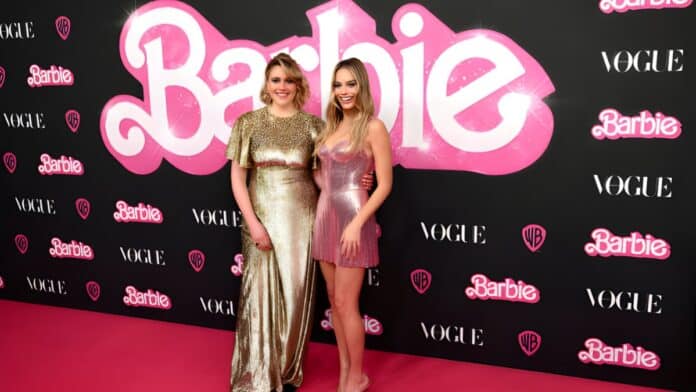In a notable celebration of cinematic achievements, the Women Film Critics Circle has declared Barbie the standout Best Movie About Women of the year 2023. Yes, the live-action adaptation of the iconic doll, often dismissed as mindless pink fluff, has unexpectedly snagged the prestigious WFCC honor, leaving many scratching their heads and others cheering.
Greta Gerwig, the talented filmmaker, brought a delightful comedy to life, with Margot Robbie taking center stage as the titular heroine. The Barbie film not only claimed the coveted Best Movie About Women award but also secured recognition for Best Equality of the Sexes from the discerning critics.
Before you brush this off as an eccentric critique, let’s delve into why the WFCC made the bold move to recognize “Barbie.” It’s not just a superficial journey through Dreamhouse-land; Greta Gerwig, renowned for her intricate female characters in “Lady Bird” and “Little Women,” has ingeniously presented a multi-faceted and subversive perspective on the iconic plastic doll.
Here’s how “Barbie” defied expectations and won the hearts of critics:
- Celebrating Femininity without Objectification: “Barbie” avoids the pitfalls of either ridiculing or overly sexualizing its main character. Instead, it applauds femininity in all its playful, powerful, and diverse manifestations. Whether it’s astronaut Barbies breaking boundaries in space or a CEO Barbie shattering glass ceilings, the film presents a spectrum of possibilities for women, free from the male gaze.
- Dismantling the Dreamhouse: The movie addresses societal pressures on girls through the clever metaphor of the Dreamhouse. Trapped in seemingly perfect but plastic lives, Barbies long for authenticity and genuine connections. Gerwig’s clever script exposes the superficiality of these expectations, prompting audiences to reconsider the narrow definitions of “girlhood” that society imposes.
- Men as Sidekicks, Not Heroes: In a groundbreaking departure from traditional narratives about women, men take on supporting roles instead of heroic ones. Ken, Barbie’s traditionally shallow partner, undergoes a humorous (and surprisingly feminist) transformation, questioning his societal role and supporting Barbie’s aspirations. This shift challenges the tired trope of women needing a man to fulfill them.
Also Read: Kuwait Prohibits Screening of Greta Gerwig’s ‘Barbie’ Movie
The WFCC’s decision to honor “Barbie” carries weight. It recognizes the film’s ability to address women’s experiences in a nuanced and entertaining manner, pushing the boundaries of what a “woman’s film” can achieve. It demonstrates that pink isn’t always trivial and that even a childhood toy can emerge as a powerful symbol of female empowerment.
Is “Barbie” the ultimate film about women? Perhaps not, but it’s a playful challenge, a satirical critique of societal expectations, and a humorous reminder that girls, like dolls, can have diverse shapes, sizes, and aspirations. Sometimes, the most unexpected films provoke the most meaningful conversations.
Will “Barbie” resonate with broader audiences and earn awards beyond the WFCC? Only time will tell. However, one thing is certain: Gerwig’s pink revolution is just starting.

